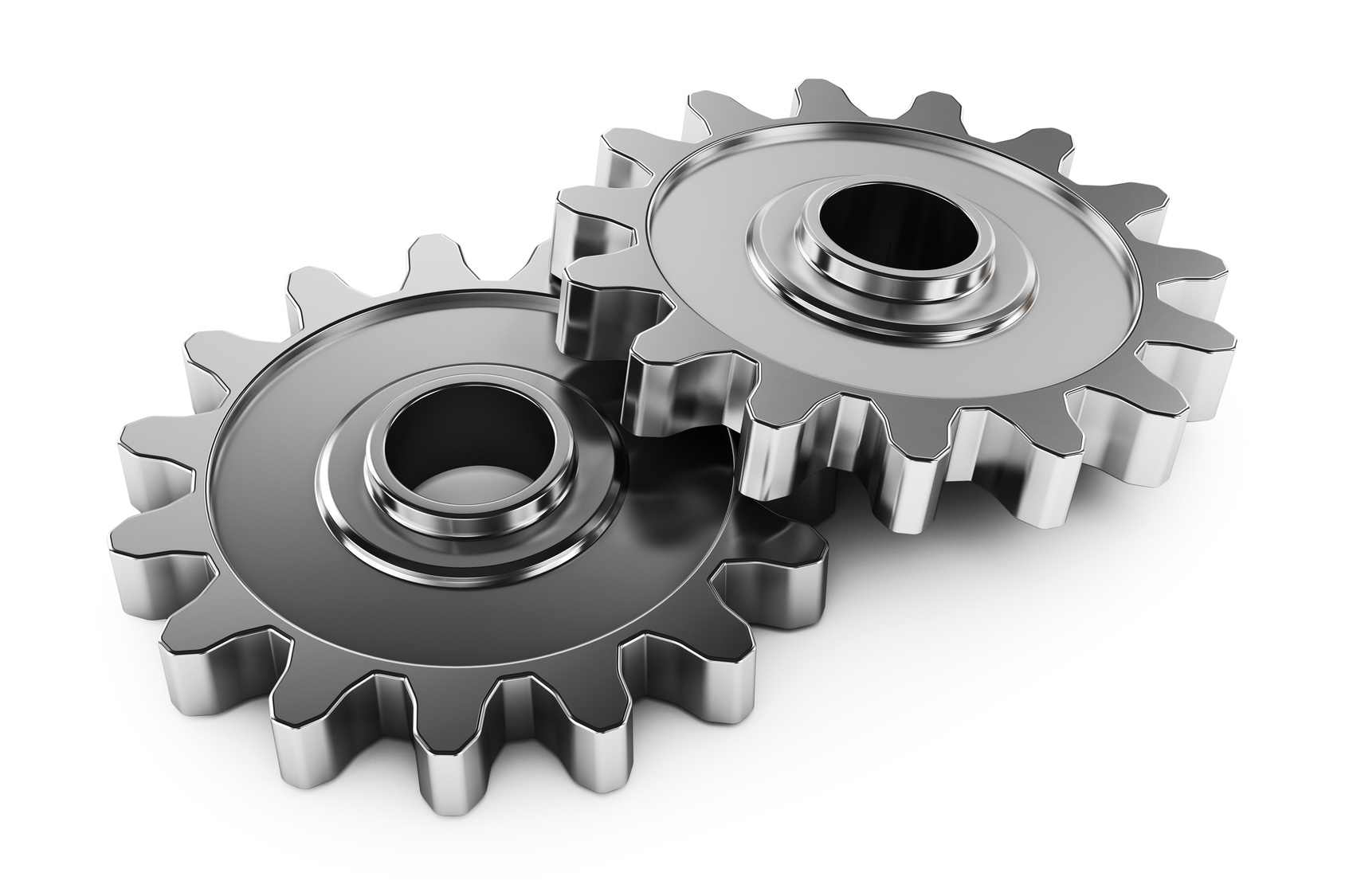
Gears are fascinating mechanical components that play a crucial role in a wide range of machinery, from simple devices to complex industrial systems. Understanding the science behind gears can provide valuable insights into how they function and their significance in various applications. In this article, we'll delve into 18 intriguing facts about gears, shedding light on their history, mechanics, and diverse uses. Whether you're a curious enthusiast or a professional seeking to expand your knowledge, these facts will unveil the captivating world of gears, offering a blend of technical details and captivating insights. So, let's embark on a journey to unravel the mysteries of gears and discover the remarkable ways in which they shape the world around us.
Key Takeaways:
- Gears are ancient yet essential mechanical devices that power machines and vehicles, shaping human history and modern technology. They convert speed and torque, driving progress across industries.
- The study of gears falls under mechanical engineering, involving complex calculations and precise tooth profiles. Gears are crucial in automotive, industrial, and renewable energy sectors, contributing to modern society’s functionality.
Gears are Mechanical Devices
Gears are mechanical devices that transmit motion and power through the meshing of toothed wheels. They are an essential component in various machines, including cars, bicycles, and industrial equipment.
Gears Come in Various Types
Gears come in various types, such as spur gears, helical gears, bevel gears, and worm gears, each designed for specific applications and operating conditions.
The History of Gears Dates Back to Ancient Times
The history of gears dates back to ancient times, with evidence of gear mechanisms found in artifacts from civilizations such as the Greeks and the Chinese.
Gears Are Integral to the Industrial Revolution
Gears played a pivotal role in the Industrial Revolution, enabling the development of machinery for manufacturing, transportation, and various other sectors.
Gears Are Essential in Automotive Transmissions
Gears play a crucial role in automotive transmissions, allowing for the smooth transfer of power from the engine to the wheels.
Gears Enable Speed and Torque Conversion
Gears enable the conversion of speed and torque, allowing machines to operate efficiently across a wide range of speeds and loads.
Gears Are Found in Everyday Objects
Gears are found in everyday objects, from clocks and watches to power tools and escalators, showcasing their widespread utility.
The Functioning of Gears Relies on Precise Tooth Profiles
The efficient functioning of gears relies on precise tooth profiles and alignments to ensure smooth and reliable power transmission.
Gear Ratios Determine Speed and Torque
Gear ratios determine the relationship between input and output speeds and torques, influencing the performance of machinery and vehicles.
Gears Require Lubrication for Optimal Performance
Proper lubrication is crucial for gears to operate smoothly and minimize wear, extending their lifespan and maintaining efficiency.
Gears Are Utilized in Robotics and Automation
Gears are integral components in robotics and automation systems, facilitating precise and controlled movement in various applications.
The Study of Gears Falls Under the Field of Mechanical Engineering
The study of gears falls under the field of mechanical engineering, encompassing the design, analysis, and application of gear systems.
Gears Are Subject to Wear and Fatigue
Over time, gears are subject to wear and fatigue due to the stresses of operation, necessitating regular maintenance and, in some cases, replacement.
Gear Design Involves Complex Calculations
The design of gears involves complex calculations to ensure optimal performance, considering factors such as load distribution and tooth profiles.
Gears Are Employed in Wind Turbines for Power Generation
Gears are employed in wind turbines to convert the low-speed rotation of the blades into high-speed rotation for power generation.
Gears Are Crucial in Heavy Machinery
Gears are crucial in heavy machinery such as cranes and excavators, providing the necessary torque and control for their operation.
The Advancement of Gear Technology Continues
The advancement of gear technology continues, with ongoing research and development aimed at enhancing efficiency, durability, and performance.
Gears Are Integral to Modern Society
Gears are integral to modern society, driving progress across industries and contributing to the functionality of countless machines and systems.
Gears are fascinating mechanical components that have shaped the course of human history and continue to play a vital role in modern technology and industry. From the ancient origins of gear mechanisms to their diverse applications in automotive, industrial, and renewable energy sectors, the significance of gears cannot be overstated. As essential elements in power transmission and motion control, gears enable the efficient operation of machinery, vehicles, and various mechanical systems. The study of gears falls within the domain of mechanical engineering, encompassing the intricate design, analysis, and optimization of gear systems. With their ability to convert speed and torque, gears are fundamental in achieving the desired mechanical output across a wide range of applications. The ongoing advancement of gear technology underscores their enduring relevance and the pursuit of enhanced performance and durability. As gears continue to drive progress and innovation, their impact on modern society remains profound, reflecting their indispensable role in shaping the world we live in.
Conclusion
In conclusion, gears are fascinating mechanical components that play a crucial role in various machines and systems. From their historical significance to their modern applications in industries and everyday devices, gears have continuously evolved to meet the demands of technology and innovation. Understanding the fundamental principles and diverse types of gears provides valuable insights into their functionality and importance. As we continue to advance in engineering and manufacturing, the significance of gears in facilitating motion, torque, and speed transmission remains unwavering, making them an indispensable aspect of our technological landscape.
FAQs
What are the different types of gears?There are several types of gears, including spur gears, helical gears, bevel gears, worm gears, and rack and pinion gears. Each type serves specific purposes based on the application's requirements and mechanical design.
How do gears contribute to mechanical advantage?Gears contribute to mechanical advantage by transmitting motion and force from one component to another, allowing for the amplification or reduction of speed and torque, depending on the gear ratio and configuration.
Gears play a vital role in our lives, from ancient times to modern marvels. Delving deeper into the world of gears, you'll find intriguing facts about Metal Gear, a beloved video game franchise that combines stealth and action. For those looking to shift their knowledge into high gear, exploring the extraordinary facts about Get Your Rear In Gear will provide a thrilling ride. And if you're seeking a unique blend of gears and refreshing beverages, the Ohiopyle Beer And Gear Festival offers an unforgettable experience that combines the best of both worlds.
Was this page helpful?
Our commitment to delivering trustworthy and engaging content is at the heart of what we do. Each fact on our site is contributed by real users like you, bringing a wealth of diverse insights and information. To ensure the highest standards of accuracy and reliability, our dedicated editors meticulously review each submission. This process guarantees that the facts we share are not only fascinating but also credible. Trust in our commitment to quality and authenticity as you explore and learn with us.


